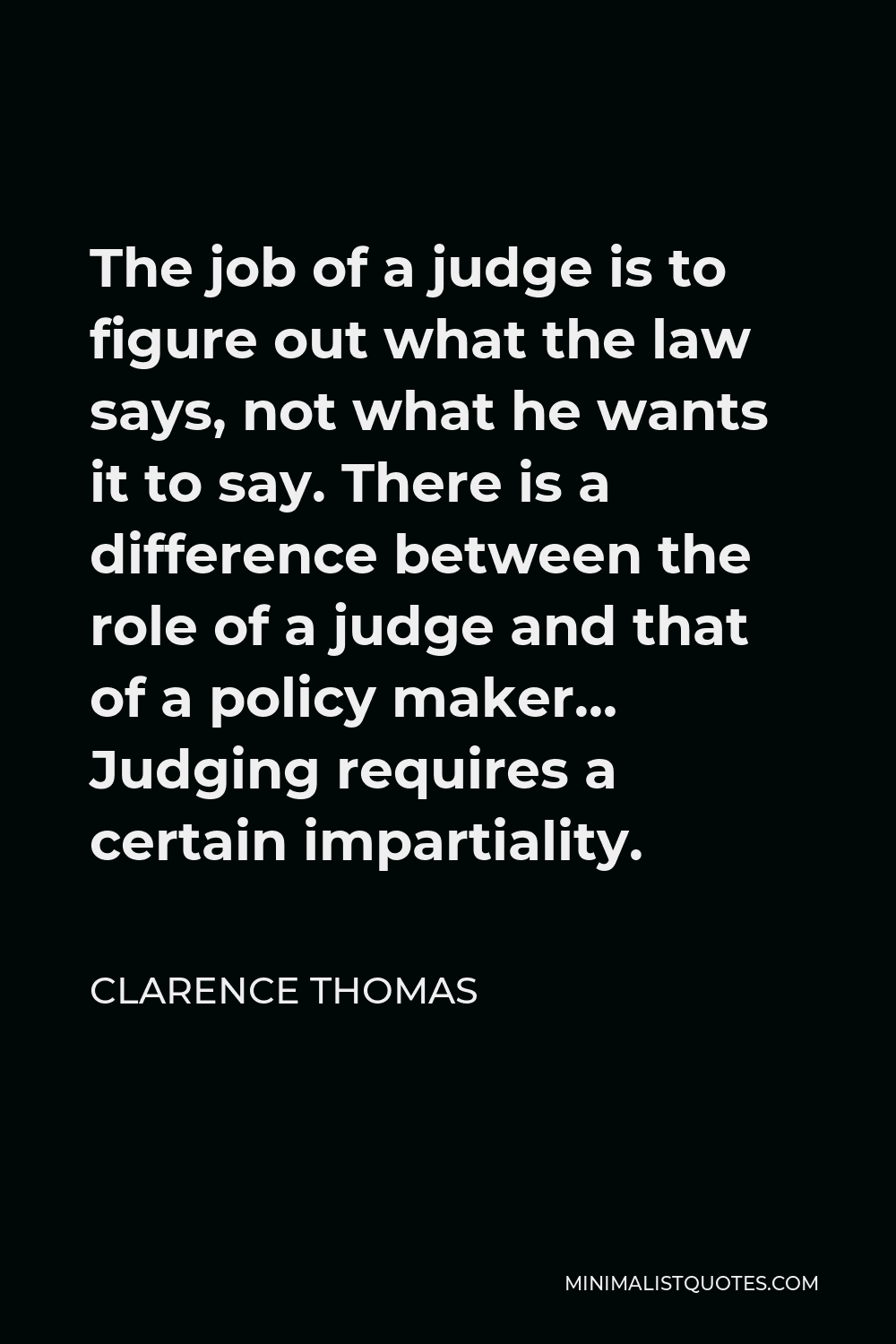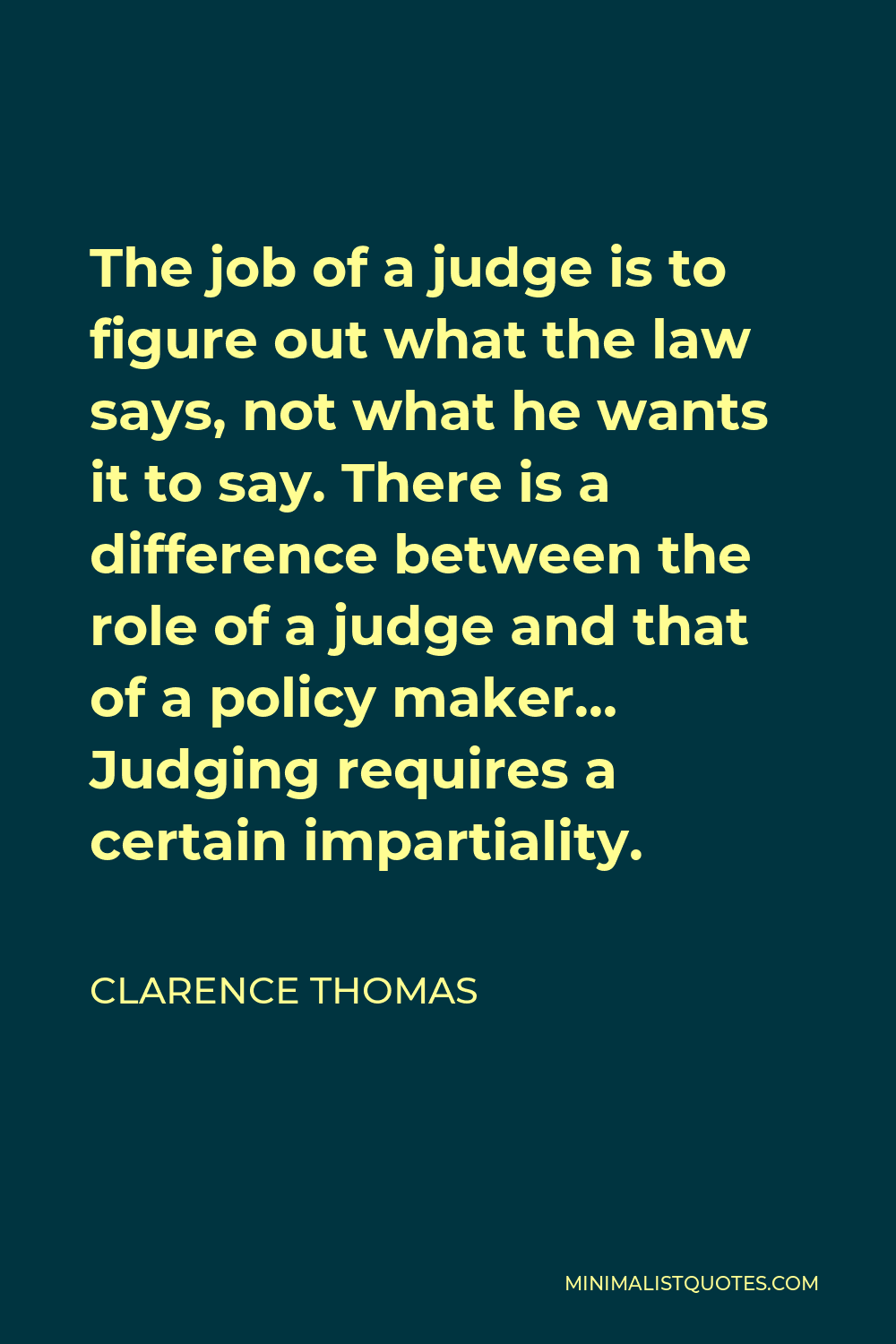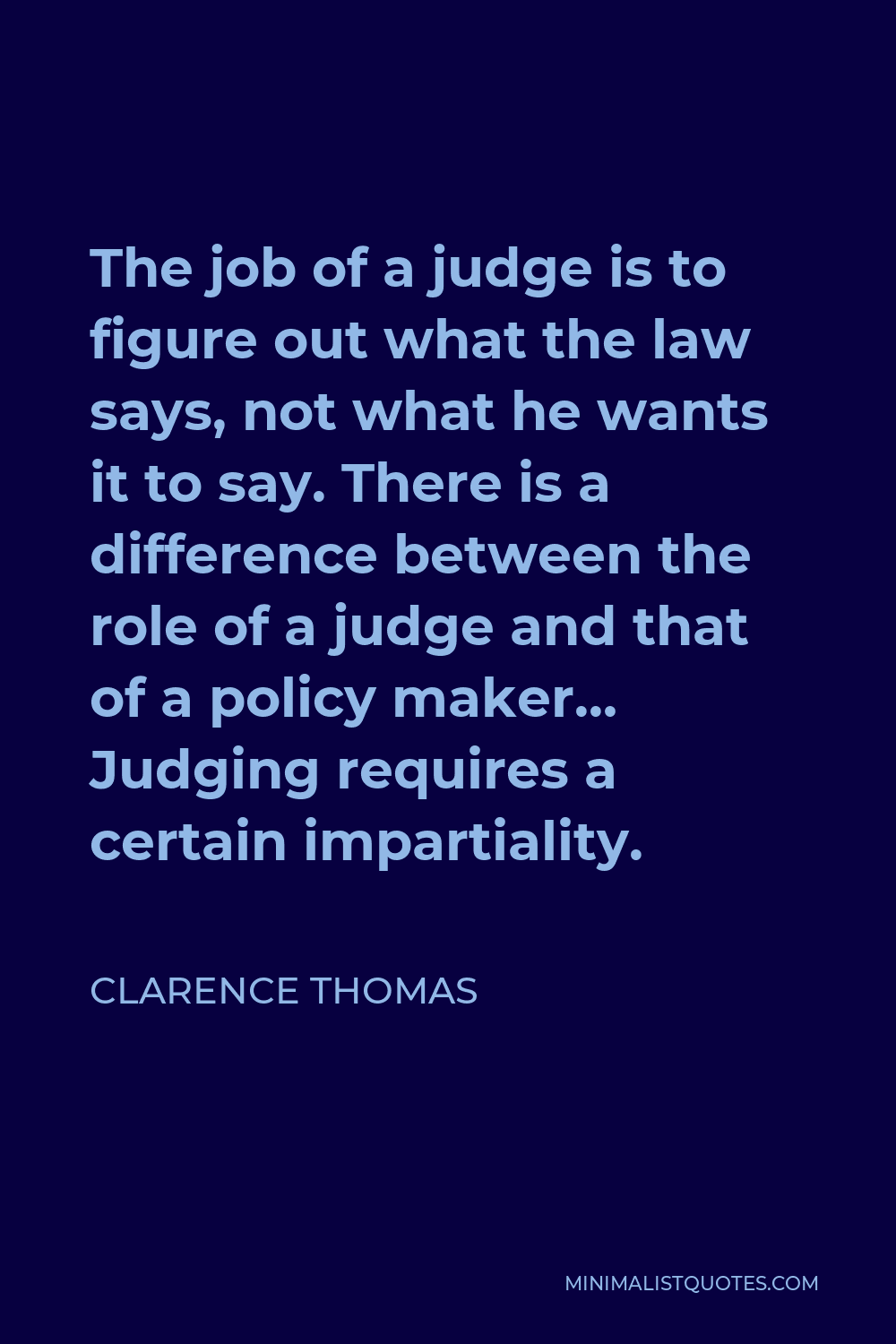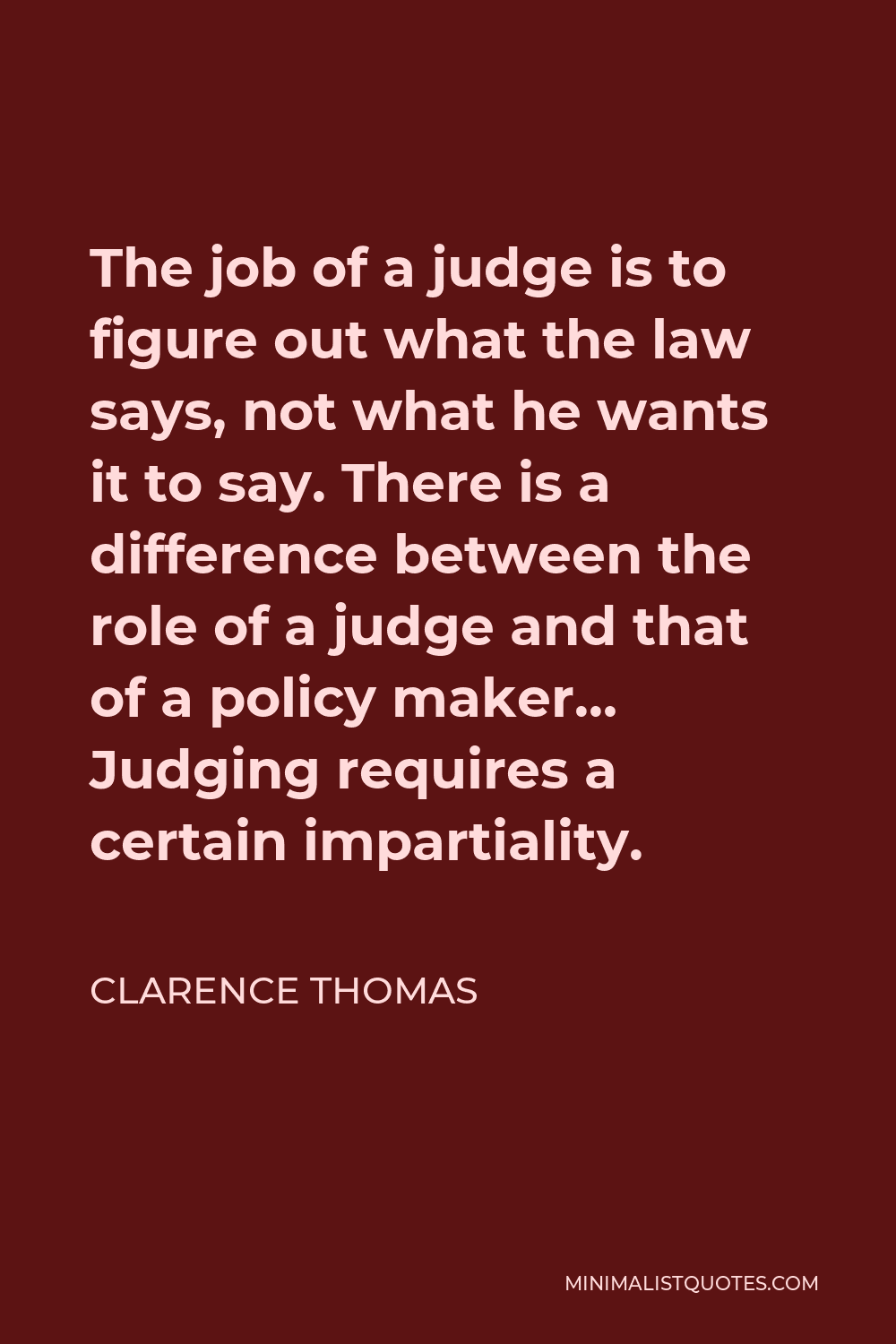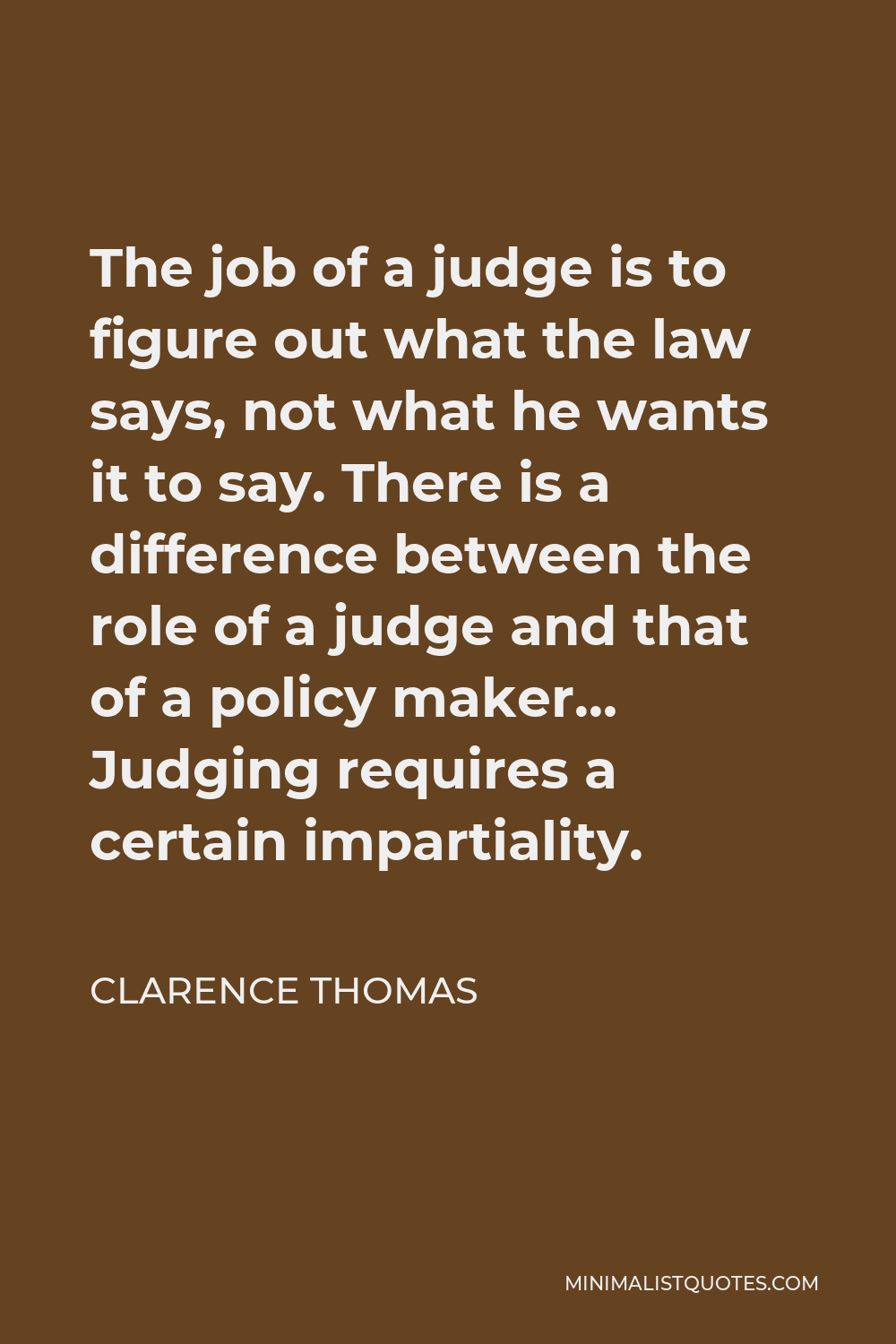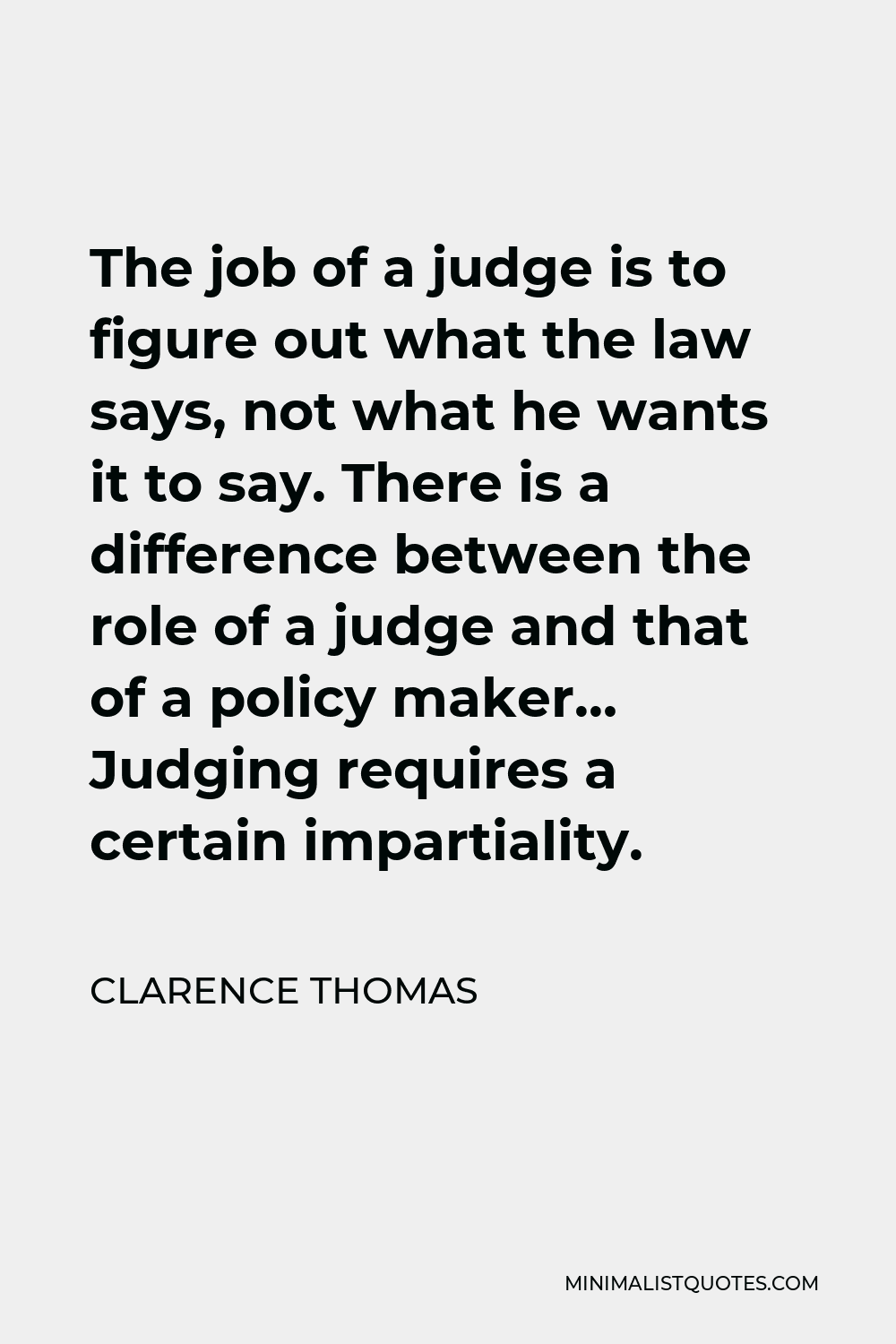You have a number of choices. You could continue to always fight against people who are really distractions. They’re people in the cheap seats of life. Or you can do what you went there to do.
CLARENCE THOMASThe job of a judge is to figure out what the law says, not what he wants it to say. There is a difference between the role of a judge and that of a policy maker… Judging requires a certain impartiality.
More Clarence Thomas Quotes
-





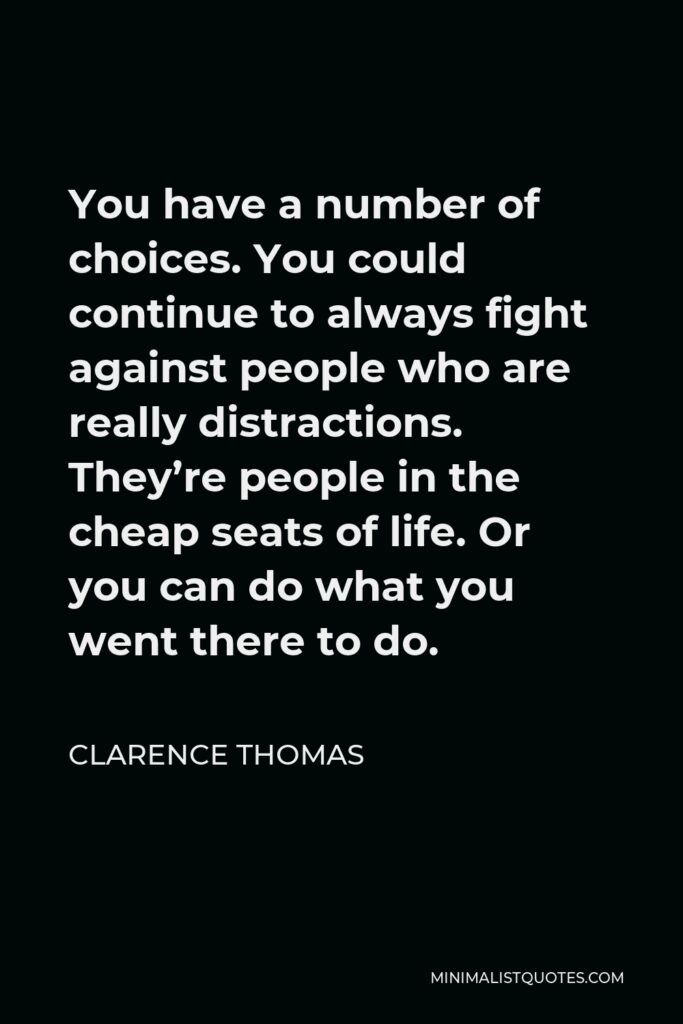

-





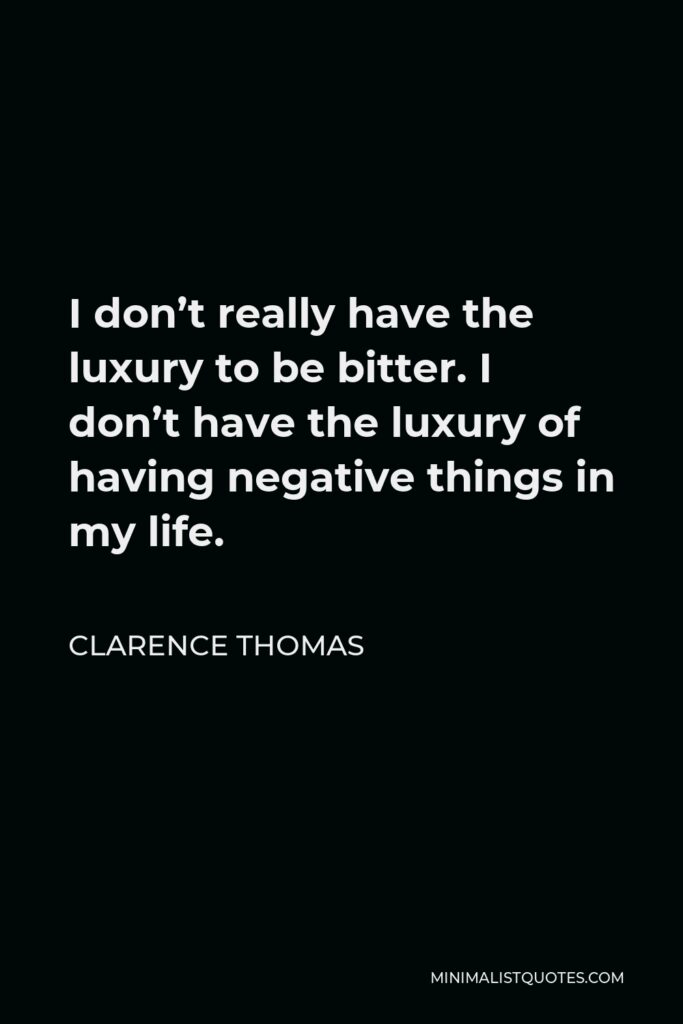

I don’t really have the luxury to be bitter. I don’t have the luxury of having negative things in my life.
CLARENCE THOMAS -





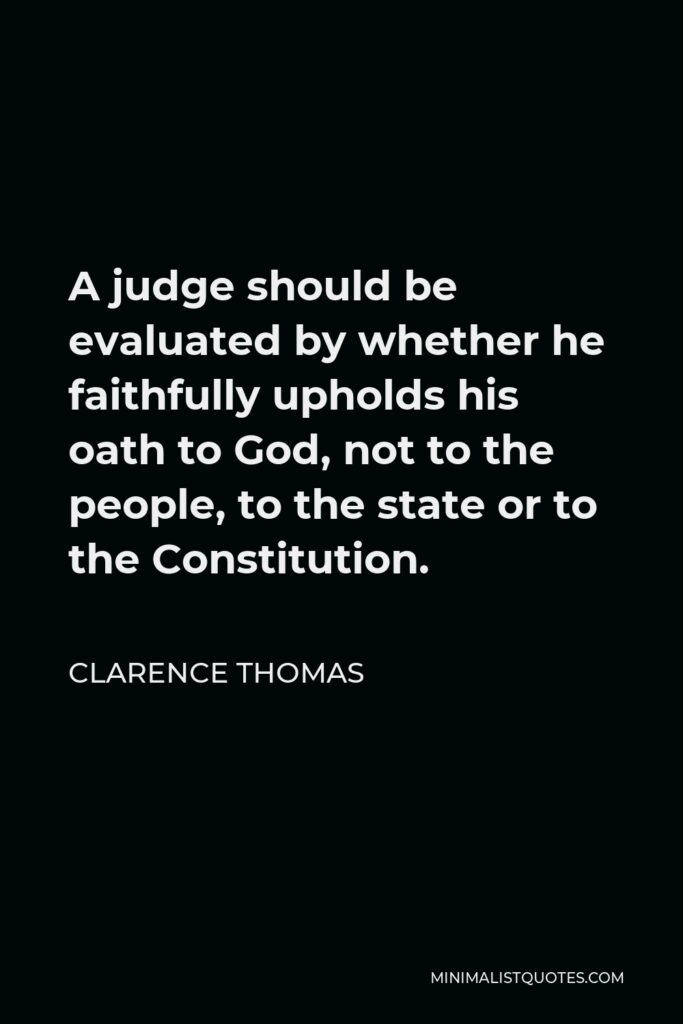

A judge should be evaluated by whether he faithfully upholds his oath to God, not to the people, to the state or to the Constitution.
CLARENCE THOMAS -





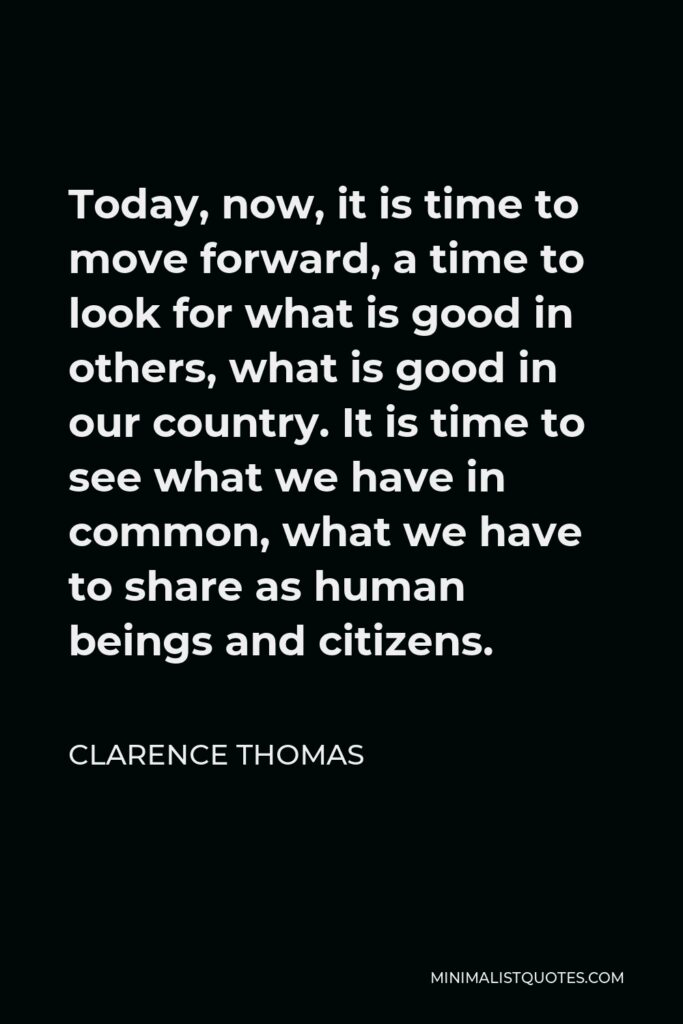

Today, now, it is time to move forward, a time to look for what is good in others, what is good in our country. It is time to see what we have in common, what we have to share as human beings and citizens.
CLARENCE THOMAS -





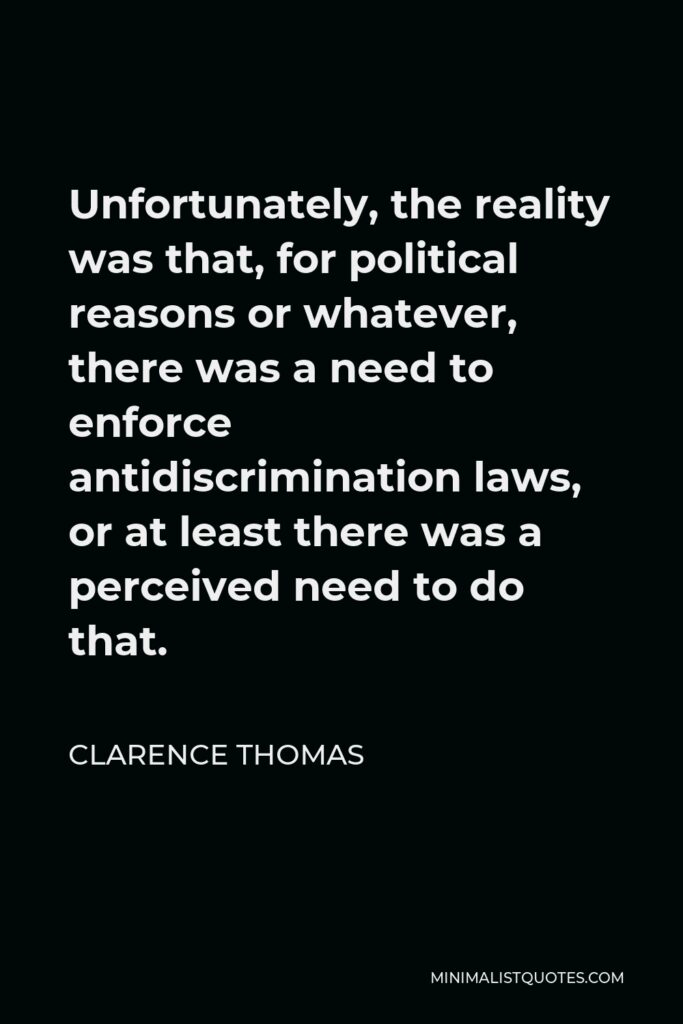

Unfortunately, the reality was that, for political reasons or whatever, there was a need to enforce antidiscrimination laws, or at least there was a perceived need to do that.
CLARENCE THOMAS -





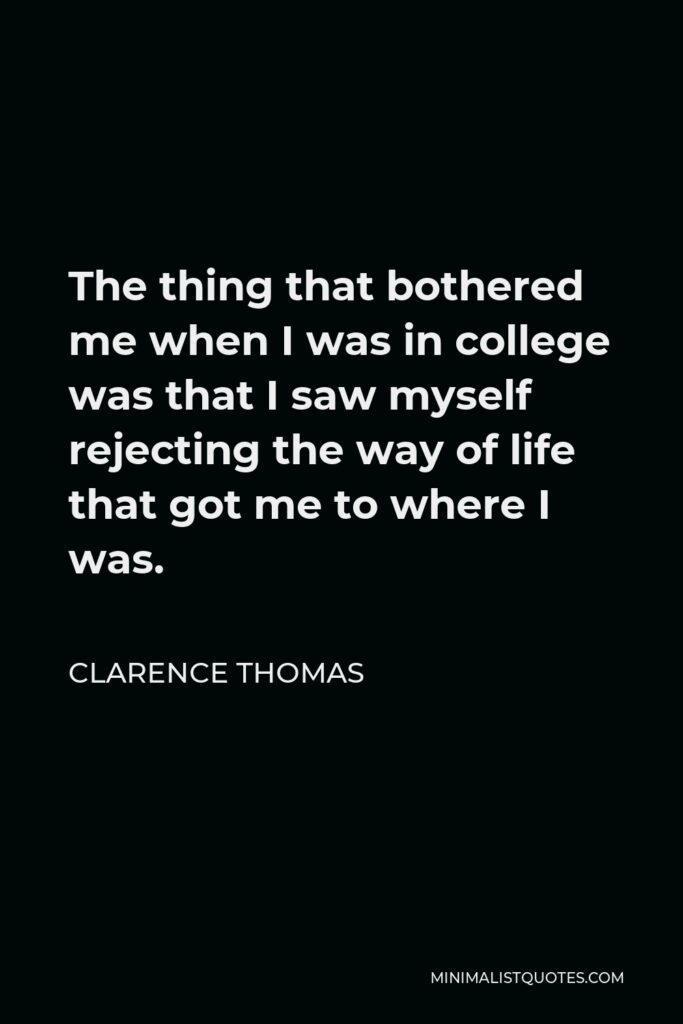

The thing that bothered me when I was in college was that I saw myself rejecting the way of life that got me to where I was.
CLARENCE THOMAS -





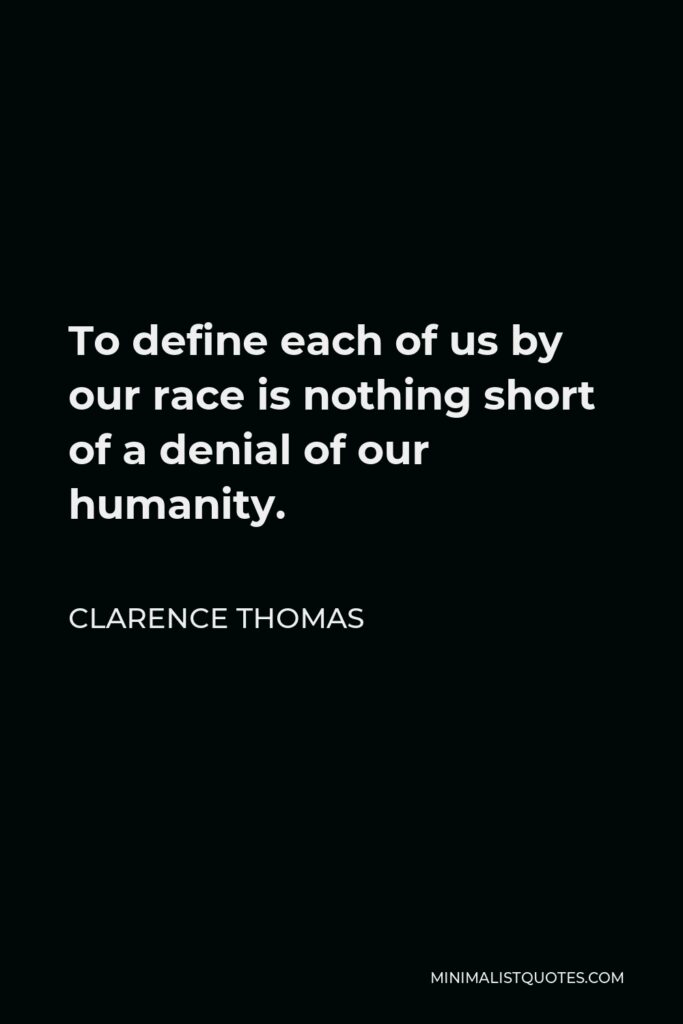

To define each of us by our race is nothing short of a denial of our humanity.
CLARENCE THOMAS -





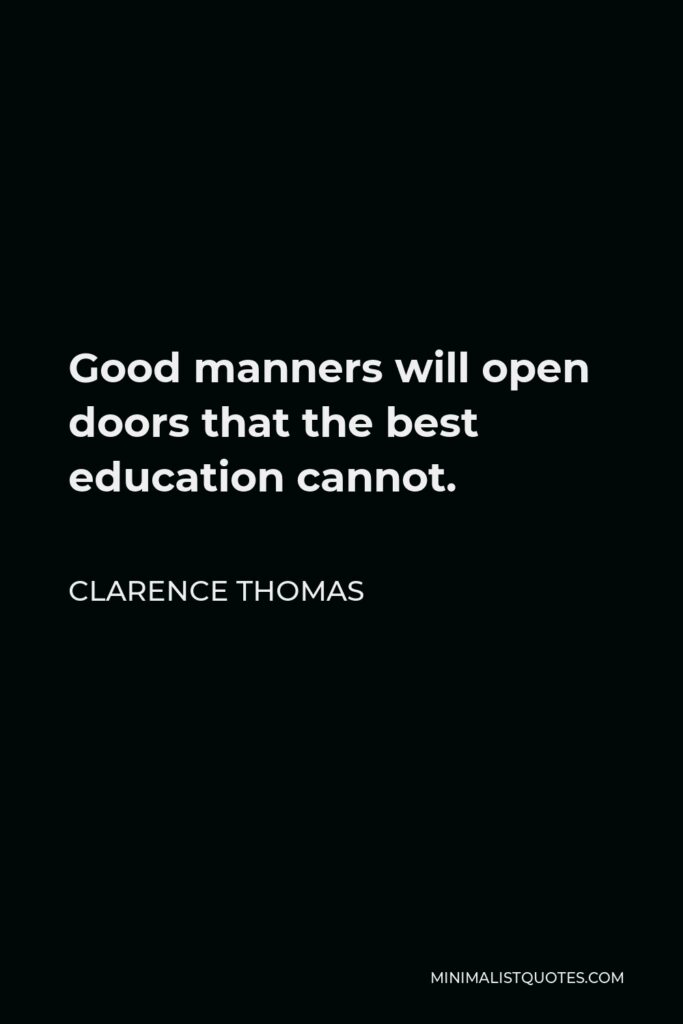

Good manners will open doors that the best education cannot.
CLARENCE THOMAS -





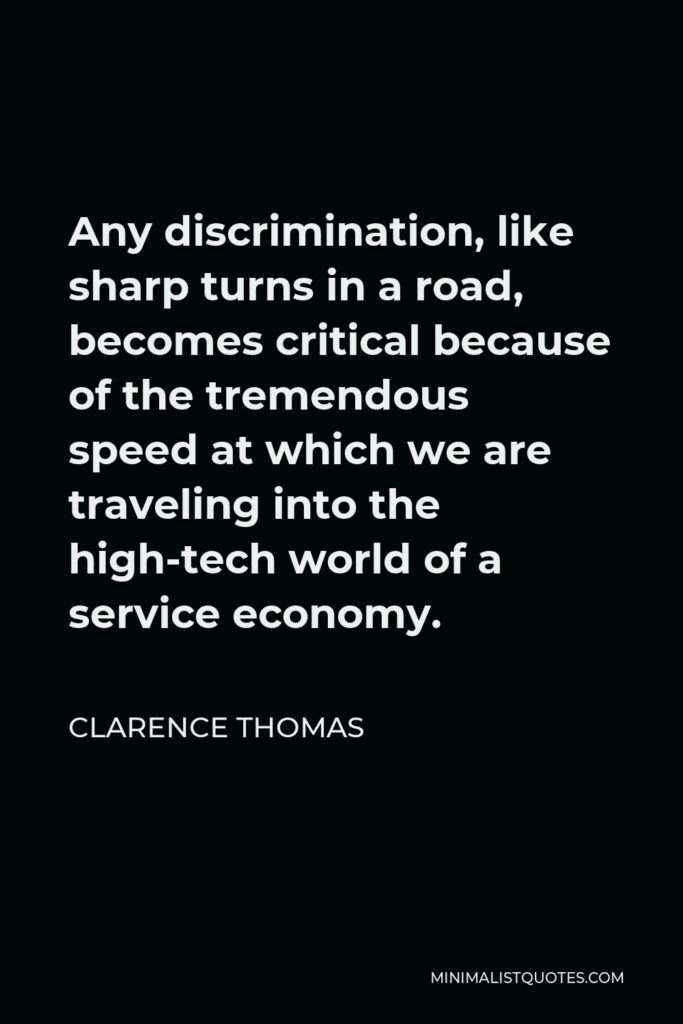

Any discrimination, like sharp turns in a road, becomes critical because of the tremendous speed at which we are traveling into the high-tech world of a service economy.
CLARENCE THOMAS -





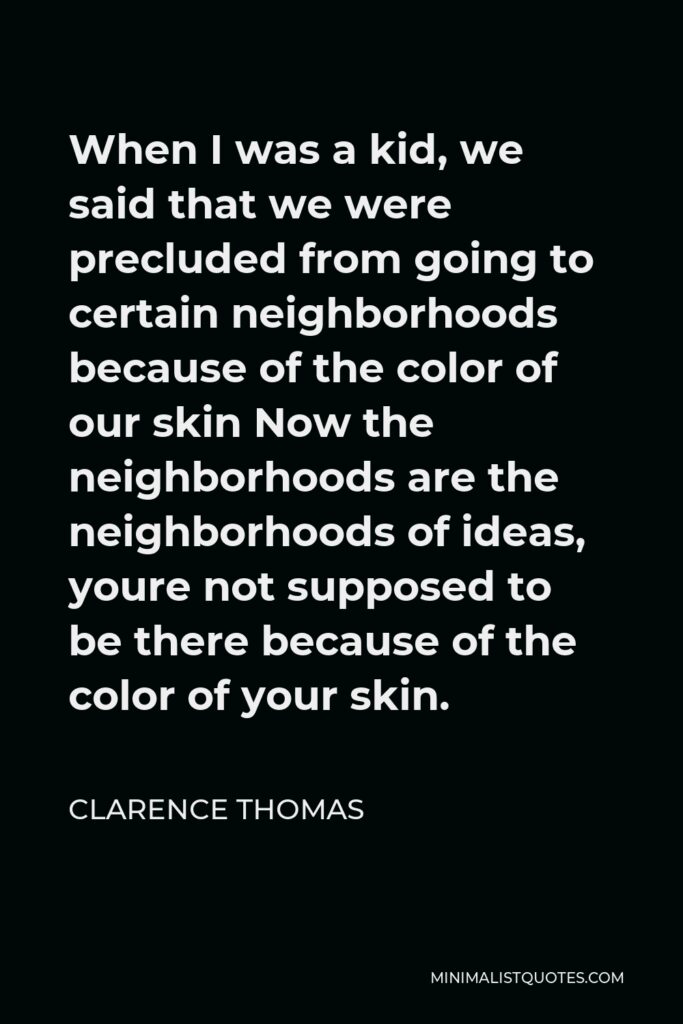

When I was a kid, we said that we were precluded from going to certain neighborhoods because of the color of our skin Now the neighborhoods are the neighborhoods of ideas, youre not supposed to be there because of the color of your skin.
CLARENCE THOMAS -





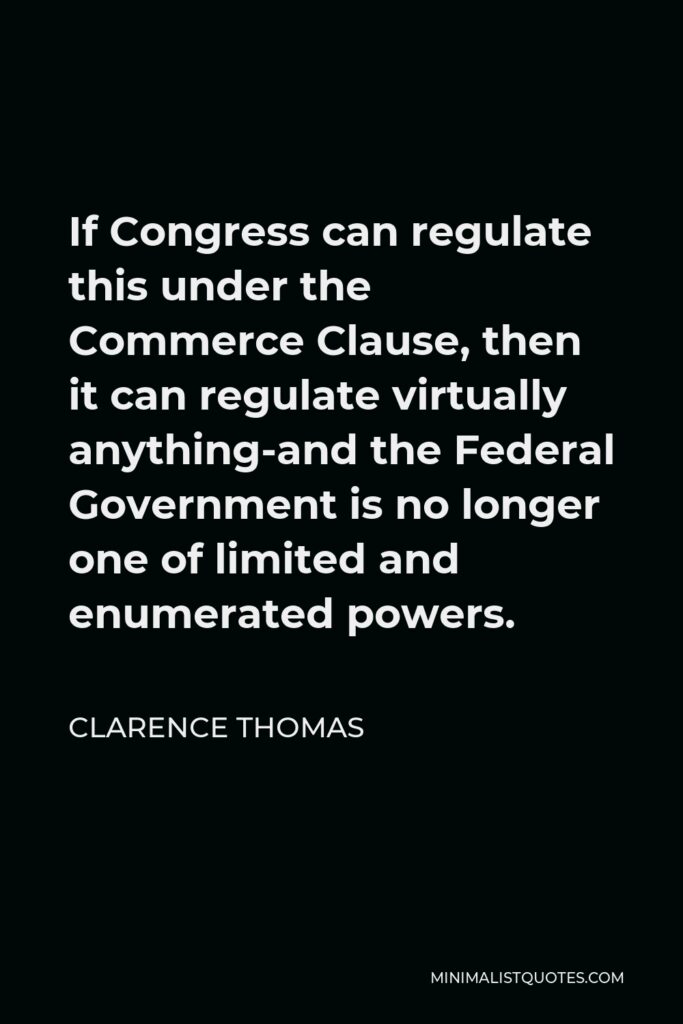

If Congress can regulate this under the Commerce Clause, then it can regulate virtually anything-and the Federal Government is no longer one of limited and enumerated powers.
CLARENCE THOMAS -





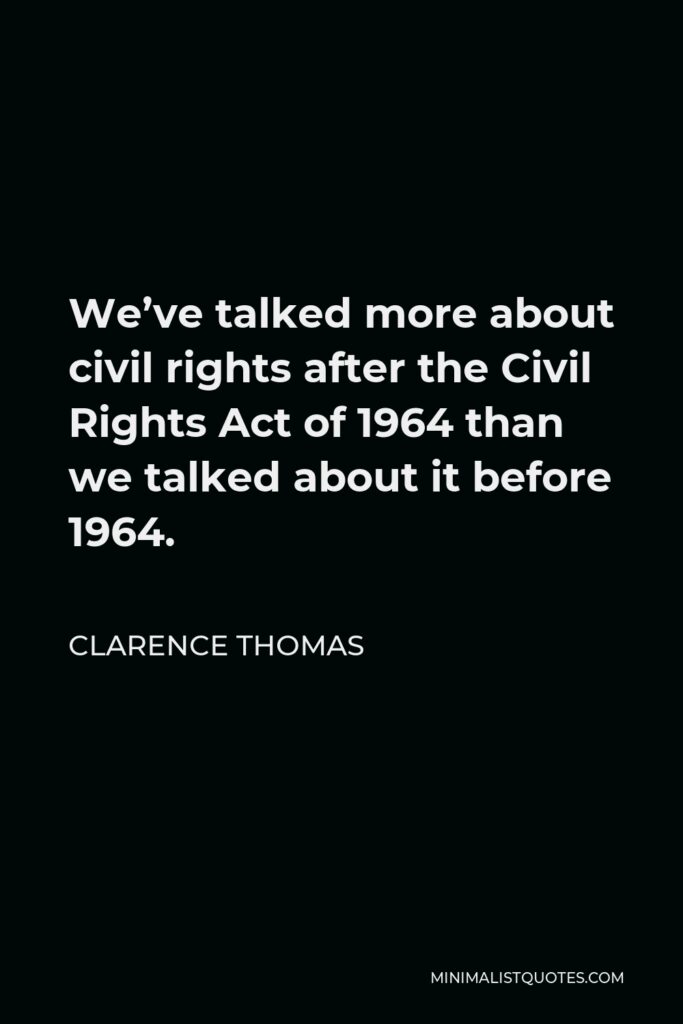

We’ve talked more about civil rights after the Civil Rights Act of 1964 than we talked about it before 1964.
CLARENCE THOMAS -





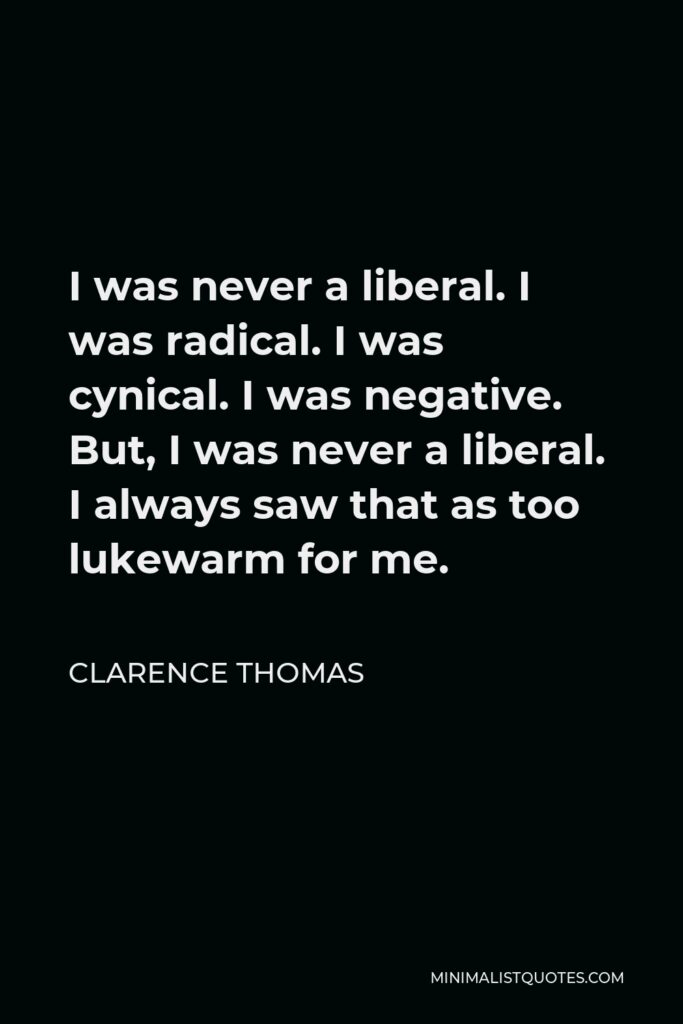

I was never a liberal. I was radical. I was cynical. I was negative. But, I was never a liberal. I always saw that as too lukewarm for me.
CLARENCE THOMAS -





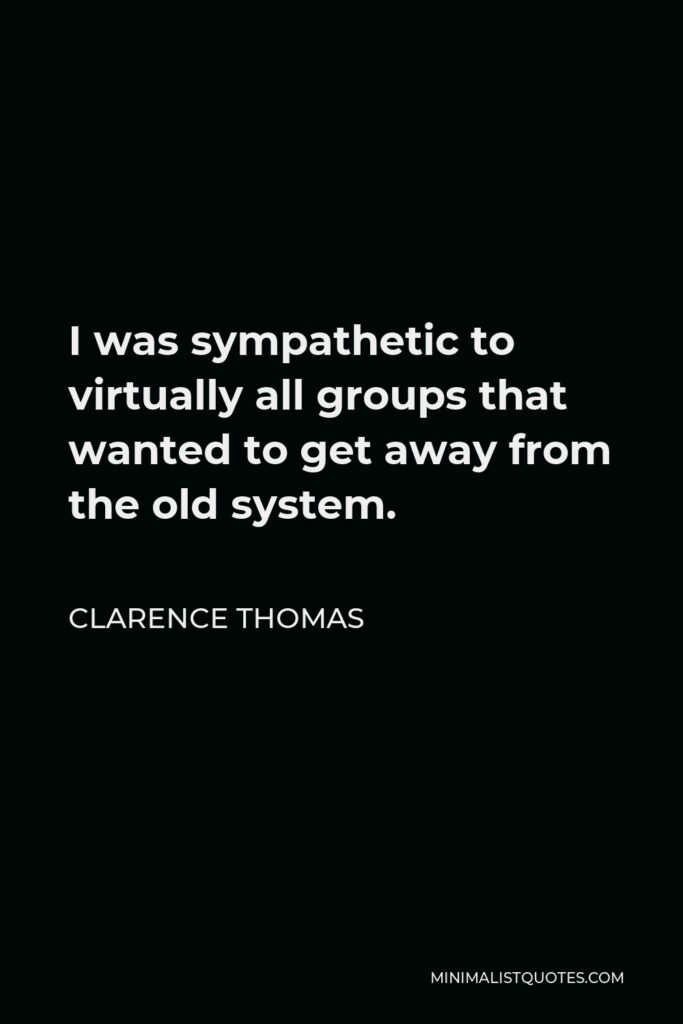

I was sympathetic to virtually all groups that wanted to get away from the old system.
CLARENCE THOMAS -





![Clarence Thomas Quote - The Constitution does not vest in Congress the authority to protect society from every bad act that might befall it. If followed to its logical extreme, [this approach] would result in an unwarranted expansion of federal power.](https://minimalistquotes.com/wp-content/uploads/2021/09/the-constitution-does-not-vest-in-congress-the-aut-683x1024.jpg)

The Constitution does not vest in Congress the authority to protect society from every bad act that might befall it. If followed to its logical extreme, [this approach] would result in an unwarranted expansion of federal power.
CLARENCE THOMAS -





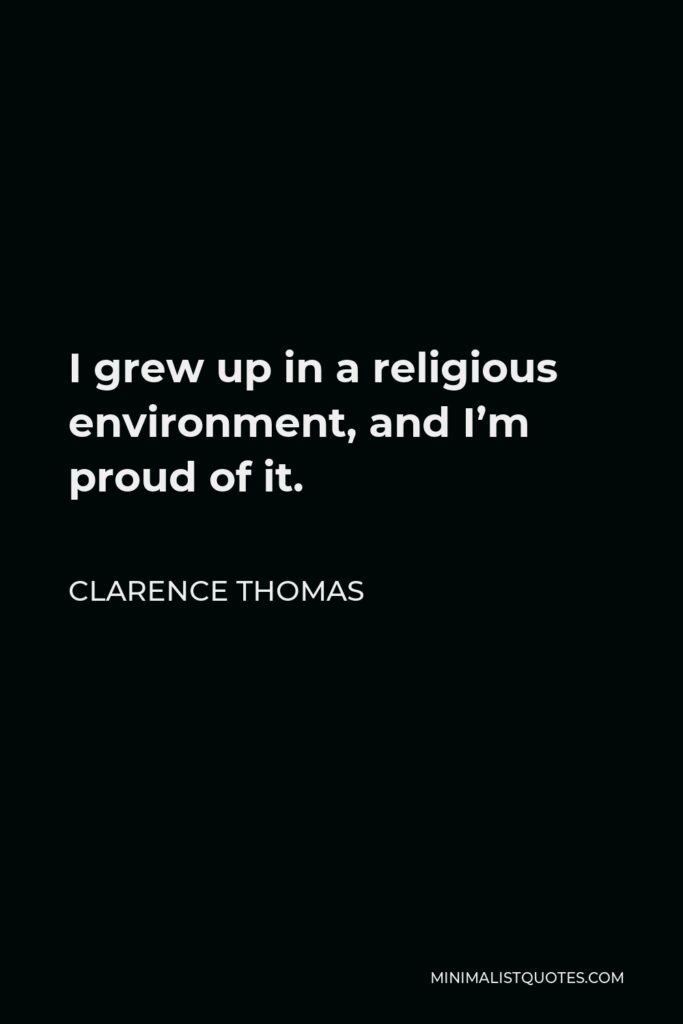

I grew up in a religious environment, and I’m proud of it.
CLARENCE THOMAS
